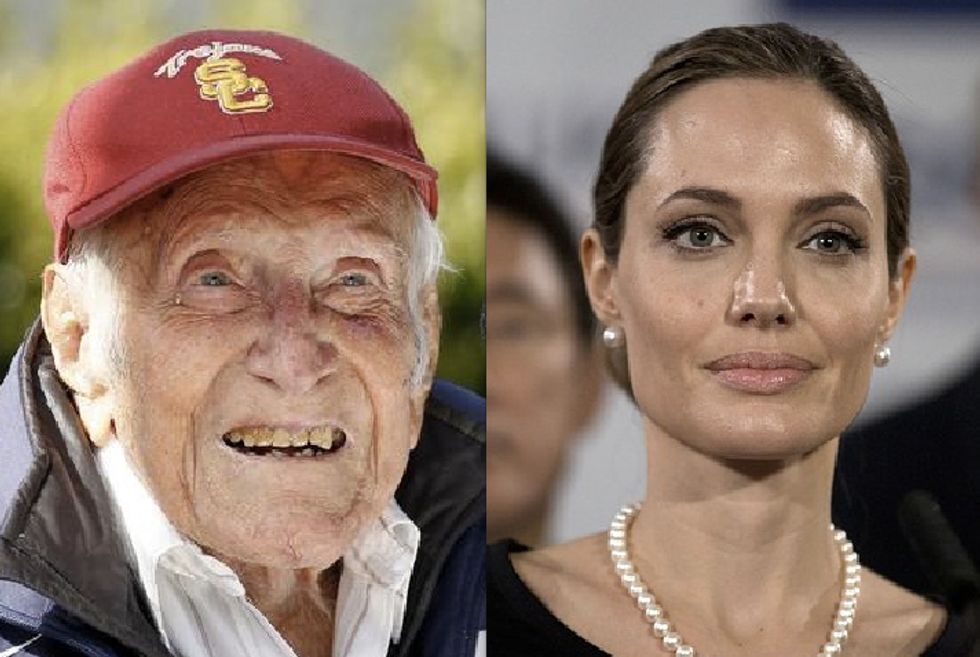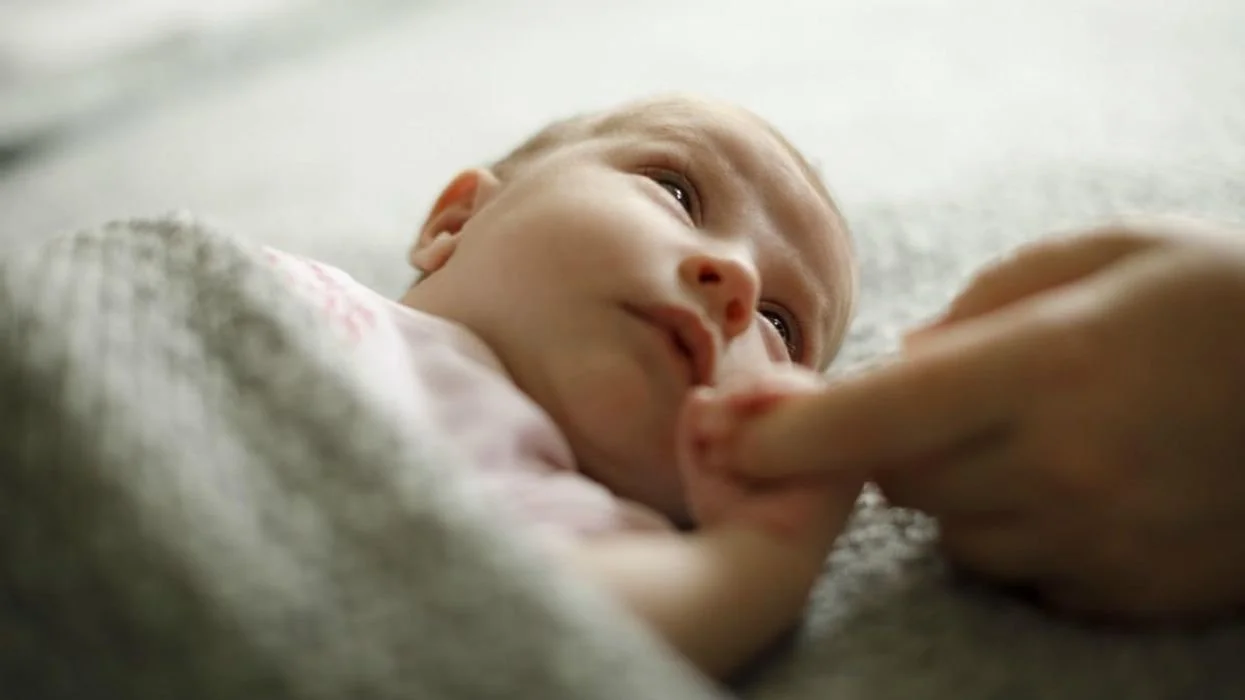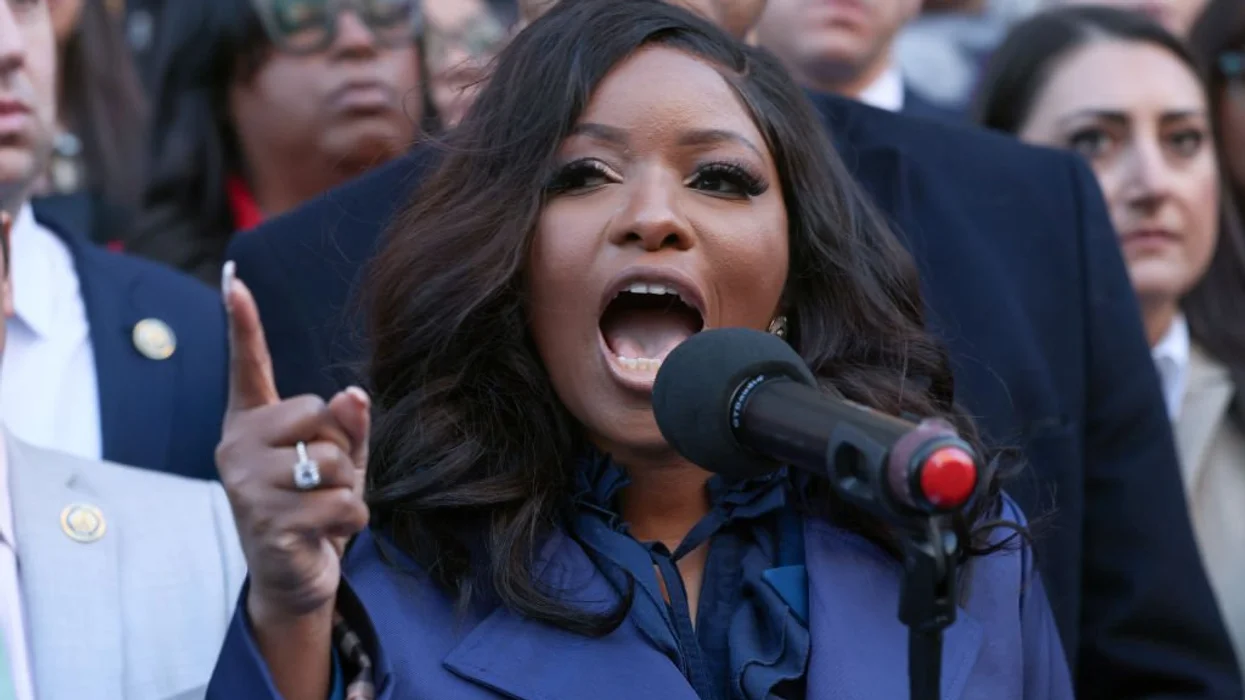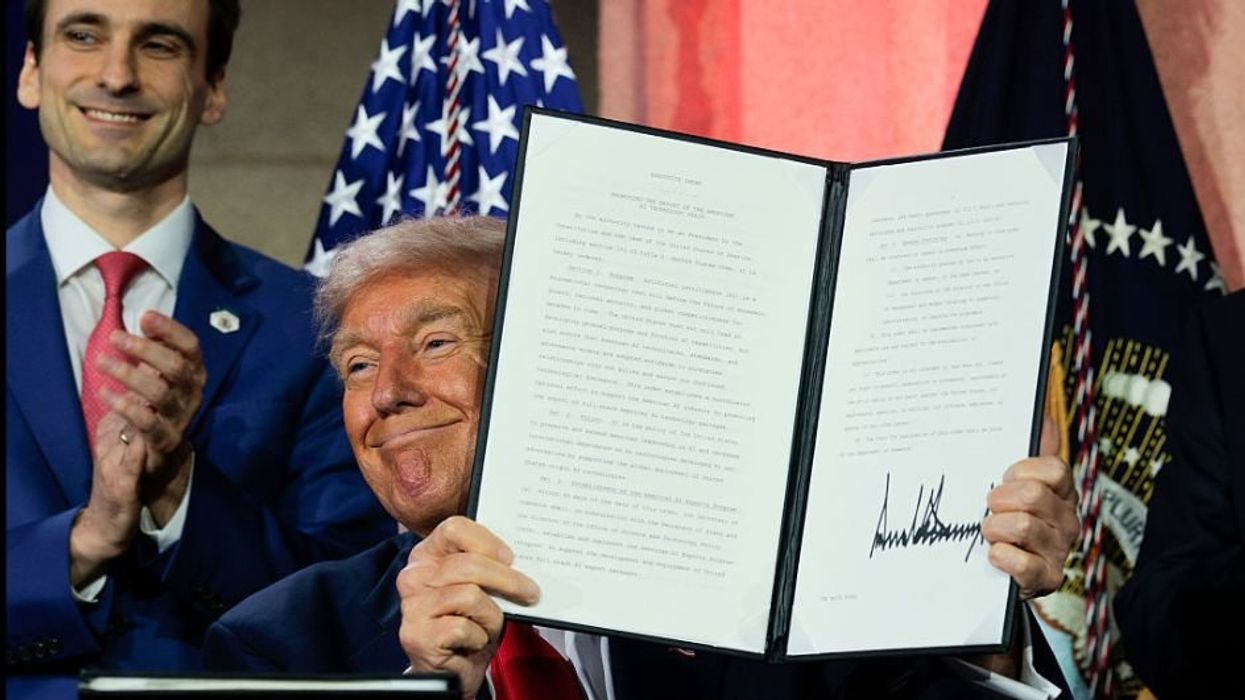
© 2025 Blaze Media LLC. All rights reserved.
Hollywood Actress Got on Her Knees and Prayed and What Happened Next Has Been Called a 'Miracle
March 20, 2015
"I think she's aware there's more to this than just telling someone's story."
Luke Zamperini, son of the late Louis Zamperini, the famed Olympic runner and U.S. Army Air Corps member who was taken hostage in Japan during World War II, told TheBlaze that actress and director Angelina Jolie experienced a number of "miraculous occurrences" while filming "Unbroken," a movie about the war hero's life.
"She communicated these stories to us about what seemed like miraculous occurrences to her," Zamperini said on The Church Boys' Freefall Q&A interview series.
He corroborated a story that was reported back in December surrounding bad weather that was at one point impeding the filming of "Unbroken" — weather that led Jolie to drop to her knees on set and pray for a miracle.
"No sooner that she got off her knees, the sky just opened up this big double rainbow," Zamperini said, noting that the storm clouds only returned after Jolie finished the scene and said "that's a wrap."
Listen to him describe these miracles below:
He also said that Jolie had an important realization while filming scenes depicting Louie Zamperini and his fellow soldiers, who were trapped for 47 days on a raft while being circled by sharks. Luke Zamperini said that capturing the scene was so daunting that it showed Jolie the grander miracle inherent in Zamperini's mere survival.
"The stunt crew never could duplicate the feat of having your raft full of holes and still be able to repair the raft," he said. "She realized the miraculous nature of what my father went through."
All this in mind, Zamperini said, "I think she's aware there's more to this than just telling someone's story."
He also went on to address some of the critiques that were initially waged against "Unbroken," which releases on DVD and Blu-Ray next week — mainly that it lacked scenes depicting Zamperini's post-war struggles and his dramatic conversion to Christianity.
"A motion picture is a three-act play that's told in the course of two hours and a couple minutes," Zamperini said. "And my father's life was a six-act play. The challenge has always been, 'How are we going to get this man's story on to the big screen?'"
While he said that it would have been nice to see an epic film, complete with an intermission, there was just so much material to work with that getting it all into the movie wasn't possible.
"People just won't sit in the movie theater that long these days," he said.
Zamperini also explained that his father sold the rights to his story to Universal back in 1957, but that it took 57 years to find the right director to make the movie. That individual ended up being Jolie, whom Zamperini described as a "really a wonderful person."
"She was so much in love with my dad and in love with the idea of telling his story that it became a work of love for her to do," he said.
In the end, he said that she honored the family's request not to lose sight of his father's faith.
"She was faithful to keep that thread of faith alive," he said. "The whole aspect of faith and forgiveness was still telegraphed to the end of the film."
Zamperini also revealed that, for those who want to see more about his father's conversion, a sequel isn't entirely out of the question.
"We may get a sequel and explore his post-traumatic stress disorder and conversion experience," he said. "There's a possibility that may happen."
He said his father's story inspires people to realize that they can get through anything that they face in life, and that his dad's conversion and realization that he could be "forgiven by God" is the "greatest miracle" of all.
Find out more about "Unbroken" here.
Want to leave a tip?
We answer to you. Help keep our content free of advertisers and big tech censorship by leaving a tip today.
Want to join the conversation?
Already a subscriber?
Billy Hallowell is a digital TV host and interviewer for Faithwire and CBN News and the co-host of CBN’s "Quick Start Podcast."
Billy Hallowell
Billy Hallowell is a digital TV host and interviewer for Faithwire and CBN News and the co-host of CBN’s "Quick Start Podcast."
more stories
Sign up for the Blaze newsletter
By signing up, you agree to our Privacy Policy and Terms of Use, and agree to receive content that may sometimes include advertisements. You may opt out at any time.
Related Content
© 2025 Blaze Media LLC. All rights reserved.
Get the stories that matter most delivered directly to your inbox.
By signing up, you agree to our Privacy Policy and Terms of Use, and agree to receive content that may sometimes include advertisements. You may opt out at any time.





